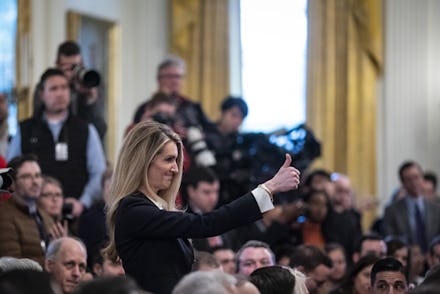Senators sold off millions of dollars in stocks while publicly urging calm over coronavirus

There's a special place in hell for the sort of person who sees a global pandemic as an opportunity to make a quick buck. That applies to regional grifters hoarding much-needed hand sanitizer, and it may well apply to some of the most powerful politicians in the country too. New reporting suggests some lawmakers may have used their positions in Washington, D.C., to preemptively cash in during the early days of the coronavirus pandemic — before the economy went sideways — while the president and his fellow Republicans were publicly downplaying the potential severity of the outbreak.
On Feb. 13, in the midst of a barrage of "all is well" messaging from the White House and congressional Republicans, North Carolina Sen. Richard Burr made 33 separate stock sales, totaling between $628,000 and $1.72 million, nonprofit investigative news outlet ProPublica reported Thursday night. Burr's stock sales came at the same time as the senator — who chairs the powerful Senate Intelligence Committee — was reportedly receiving daily briefings from U.S. spy agencies on the global impact of the coronavirus pandemic. Some of the most conspicuous sales dealt with holdings in hospitality stock, including shares in Wyndham Hotels & Resorts Inc. and Extended Stay America Inc.
And wouldn't you know it? Shortly after Burr's transactions were completed, the U.S. stock market imploded, wiping out billions from the American economy and sending the country into a financial tailspin. The hospitality industry has been one of the hardest hit by the pandemic, as tourism and travel have been curbed significantly.
Notably, Burr was one of just three senators who opposed the 2012 STOCK act, signed into law by then-President Barack Obama, which expressly stated that lawmakers and their staff were not exempt from insider trading laws.
Adding to the deeply sketchy nature of Burr's last minute stock sales is the fact that, just hours before ProPublica's report went live, NPR published a separate report featuring audio of Burr describing the severity of the oncoming health crisis to a private luncheon of wealthy constituents on Feb. 27 — well before his public comments on the pandemic were to rise to the level of concern he was recorded sharing in private.
In a statement to ProPublica, a spokesperson from Burr's office offered the following defense of his stock sales:
Sen. Burr filed a financial disclosure form for personal transactions made several weeks before the U.S. and financial markets showed signs of volatility due to the growing coronavirus outbreak.
Of course, that's the whole problem: He sold off up to $1.7 million dollars of stock before the market took a nose-dive. How this statement, which essentially confirms ProPublica's report, is supposed to absolve Burr is anyone's guess.
Incredibly, Burr is apparently not alone when it comes to extremely suspicious-seeming stock transactions. According to The Daily Beast, fellow Republican senator and Georgia billionaire Kelly Loeffler also happened to dump a fortune in stocks after receiving special Senate briefings on coronavirus's impact, but before the stock market began its plummet into bear territory. Notably, during her late January-through-mid-February stock spree, Loeffler reportedly purchased shares in telework software company Citrix — just in time for workers around the country to discover the agony of teleworking from home.
Loeffler has denied any wrongdoing, tweeting that all her stock decisions were made by an outside adviser:
Still, it's supremely suspicious that Loeffler would engage in a flurry of sell-offs, and then a few weeks later, tweet messages like this:
Nothing to see here! Everything is fine. It's just fine!!!
Burr and Loeffler are not, in fact, the only senators to have sold stock shortly after the began to receive coronavirus briefings. Democratic Sen. Dianne Feinstein (Calif.) also sold $1.5 million to $6 million worth of stock in a California biotech firm during the same time frame, although the sale — which was reported on at the time — was at a substantial loss. A Feinstein spokesperson told NBC News that all of the senator's assets are in a blind trust, and that the sales in question were made by her husband.
Oklahoma Republican Sen. Jim Inhofe also reportedly shed $400,000 worth of stock on Jan. 27, as reported by The New York Times. In an email to Mic, Inhofe's staff shared a statement from the senator denying any wrongdoing:
The New York Times allegations are completely baseless and 100% false. I was not at the briefing on Jan. 24. I was meeting with pro-life kids from Oklahoma here for the March for Life and the new nominee to be U.S. ambassador to Tanzania. I do not have any involvement in my investment decisions. In December 2018, shortly after becoming chairman of the Senate Armed Services Committee, I instructed my financial adviser to move me out of all stocks and into mutual funds to avoid any appearance of controversy. My adviser has been doing so faithfully since that time and I am not aware of or consulted about any transactions.
Profiteering during a health crisis is bad, but it could, I suppose, be reasonably argued that anyone keenly watching global politics could have feasibly seen some market disruption coming as far back as January. What's not reasonable, however, is for political leaders and people in positions of authority to personally act with a sense of urgency, while publicly attempting to downplay the very dangers they were allegedly capitalizing upon.
Mic reached out to the offices of both Burr and Loeffler for comment on their respective stock sales, and will update this post if either or both respond.